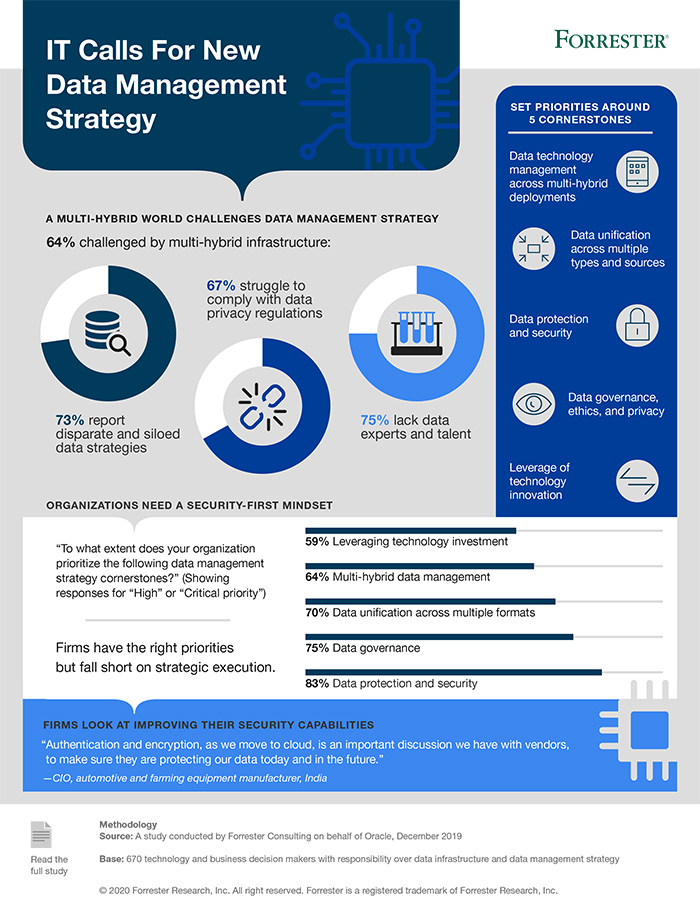Few things are as frustrating as being unable to find that thing you know you have. Like that tool you thought you left on the shelf in the basement, or the book you could have sworn was on the bedside table. Or information. The lifeblood of organisations and the foundation for critical decision-making – made all the more necessary in today’s business environment.
The challenge is that information is still commonly stored in various systems including the cloud, making it hard for companies to leverage it as a key way to create more value.
A new study from Forrester Consulting, commissioned by Oracle, emphasises the essential role of multi-hybrid cloud platforms to collate the mass of information that enables analysis of insights and inform business-critical decisions.

Condensing the Cloud
The study, entitled Moving the Needle: Data Management for the Multi-Hybrid Age of IT, explains that 82% of the 670 senior technology decision makers recognise that investing in the right data management strategy will lead to better business outcomes. But 73% admit that they have disparate and siloed data strategies that are stopping them from providing business stakeholders with the data they need.
As the study shows, with increased complexity, compounded by working across different IT environments, 64% of respondents are grappling with the challenge of managing a multi-hybrid infrastructure. So it’s not a surprise if 70% of organisations consider the need to simplify their IT processes as a high priority.
One issue highlighted by the study is that concerns and focus around data security and data governance are limiting businesses from gaining key benefits. According to the research, the adoption of multi-cloud data hosting is driven by the need for diversification as well as access to unique capabilities –6 out of 10 respondents mentioned “accessing specific technology or capabilities” as drivers for their multi-cloud strategy.
However, even though 83% of firms believe that data security requirements are of high or critical priority as they advance along their data management roadmap, half of respondents say they currently lack the ability to adequately ensure data protection and comply with security regulations.
Given these challenges, the study recommends that organisations look to their technology partners for a unified data platform that will provide end-to-end visibility across their hybrid environments, along with the security foundations that are flexible enough to meet current and future data complexities.
Key Findings
- 82% want their data strategy to lead to a better understanding of the customer and a better customer experience.
- 73% of organisations report disparate and siloed data strategies that stop them from achieving this goal.
- 36% of the data is still hosted on-premise, 19% is hosted on a public cloud and 18% on private cloud.
- The nature of the data collected by these organisations has considerably changed – with 31% being tabular/structured and the remainder being non-tabular/semi structured or unstructured data. Of the latter, are 18% text data and the rest evenly distributed across images/video, machine generated data, streaming data, and others
- Public sector and retail show low data strategy maturity: 34% of public sector and healthcare organisations have an incomplete data strategy.








